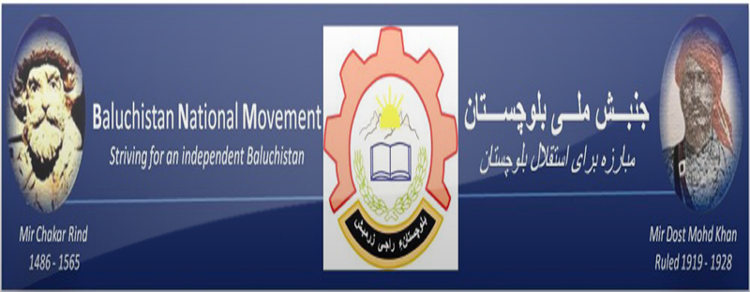The flavor of geopolitical discussions these days is the Democratic People’s Republic of Korea (DPRK), commonly known as North Korea. As always, it is the present-day context that makes the country quite the hot potato.
The starting point for such discussions is invariably North Korea’s heretical brand of communism that follows a dynastic order. It is also a Stalinist state, which distinguishes it from other ‘mainstream’ communist regimes.
The last bastion of Stalinism
Lenin’s Bolshevik Russia was a vicious place from its inception. But it was under Joseph Stalin that evil reached diabolical extremes, hitherto unknown in human history. Murder, torture, mass deportation, incarceration of millions in concentration camps and the unbridled excesses of security services were the mainstay of its state policy. Stalin had himself once famously said that a single death is a tragedy, a million deaths a statistic.
On Stalin’s death in 1953, the world heaved a collective sigh of relief as his reign of terror had infested every aspect of life in Bolshevik Russia. His successor Nikita Khrushchev was quick to remove all Stalinists from positions of power, and is famously known for denouncing the crimes of Stalin at the 20th congress of the Communist Party of the Soviet Union in 1956.
Also read: Nuclear deal allows Iran to become the next ‘North Korea,’ US envoy warns
However, Bolshevik Russia remained a brutal place, with no real freedoms available to its citizenry, but Stalinism never returned. Even Stalingrad — the city that bore Satlin’s name and was the place where one of the most important battles of the 20th century was fought — was deserted.
One can surmise that North Korean weapons may have killed soldiers and citizens of Saudi Arabia over the years, and this might be happening in Yemen even today
Faisal Al-Shammeri
The famines, summary executions, concentration camps, dragnet of security services, terror and torture of innocent civilians that once characterized Stalin’s Russia now beset North Korea. As a violator of human rights, the regime in Pyongyang finds itself among the worst in history. Only Stalin, Hitler and Mao perpetrated greater barbarity than the present Kim dynasty.
With regular news of mass and summary executions and a country perpetually on the brink of famine, with orphaned street children desperately seeking food, warmth and shelter, the sadism of North Korea is only topped by ISIS. So from the vantage point of what we know about the DPRK, let us take a look at the things that we do not know.
Nuclear missiles on mobile launchers
The recent inter-continental ballistic missile (ICBM) tests conducted by Pyongyang are critical for two reasons. Instead of being tested from a fixed position, these missiles were fired from mobile launchers with a nose cone capable of carrying nuclear payload.
The Kim regime is the greatest proliferator of ICBM’s around the world, but it seems that some power has supplied the country with both the mobile launchers and the nuclear-missile nose cone. What are the strategic implications of this development for the Middle East? There may be several serious ramifications of this development for the region, which need looking into:
1. We know that the Assad regime in Syria has been working on a nuclear program with North Korean assistance. To what end have North Korea and Syria been working together in this regard? Is there still a relationship between Pyongyang and Damascus on nuclear issues?
2. Recently, two North Korean ships were intercepted at sea en route to Syria. Is North Korea actively shipping weapons to the Assad regime that are used for killing the people of Syria?
3. Iranian engineers and scientists were present at the ICBM launches in North Korea. What common cause brought the theocratic Shiite state of Iran so close to an atheist, Stalinist regime?
4. How has Pyongyang aided Tehran with in its missile development program? Has DPRK shared its technology on developing Iran’s ICBM’s, particularly in the development of mobile launchers? Is the nature of this exchange limited to the missiles or does it also include the nuclear-tipped cones that Pyongyang has recently obtained?
5. In an environment of heightened sanctions and limited access to foreign currency, it is estimated that this new technology would have cost North Korea about $1.3 billion annually to have reached the stage of conducting these tests, which also includes both research and development and manufacturing expenses. According to The CIA Factbook, the GDP of North Korea in 2013 was an estimated $28 billion. It seems someone is helping North Korea finance these tests? If so, who?
Also read: A Saudi man’s tales in North Korea
Tehran provides the Iranian Revolutionary Guard Corps (IRGC), a designated terrorist group, with the weapons it procures from Pyongyang. It is also reasonable to conclude that these weapons eventually pass on to Hezbollah, Houthis and the sectarian militias in Iraq.
To put it bluntly, one can surmise that North Korean weapons may have killed soldiers and citizens of Saudi Arabia over the years, and this might be happening in Yemen even today.
North Korea impacts the Arabian Gulf
It is indeed a matter of collective shame for the world that a Stalinist regime not only exists on the planet today, but enjoys official recognition and the legitimate right to exist by having its diplomatic missions around the world.
It should now become abundantly clear that the actions of North Korea not only destabilize Northeast Asia, threatening Seoul and Tokyo, but also have a cascading effect on the security situation in the Arabian Gulf. North Korea is not just problem for South Korea, Japan, and United States. It is a problem for The Kingdom of Saudi Arabia, The Gulf Cooperation Council, and even the people of Syria.
___________________________
Faisal Al-Shammeri is a political analyst based in Washington DC. He tweets @mr_alshammeri.


